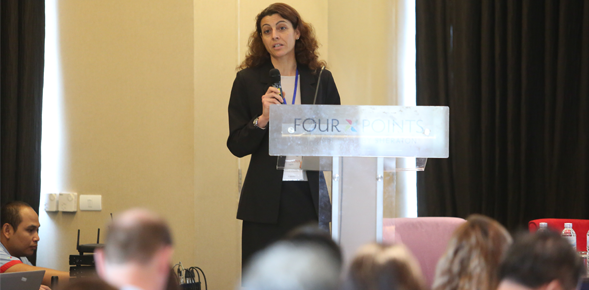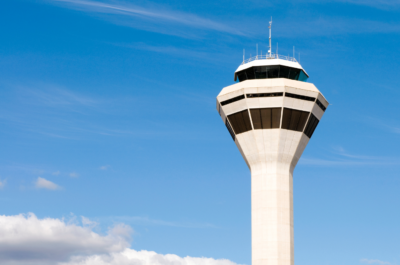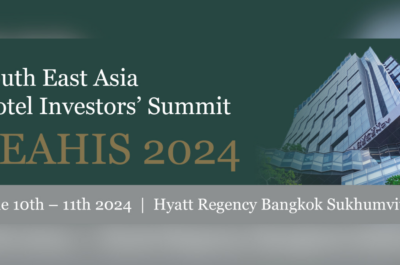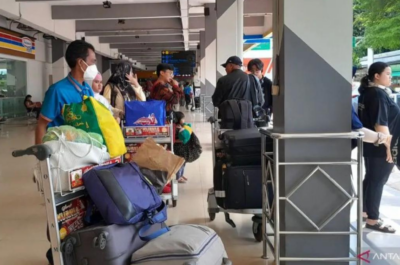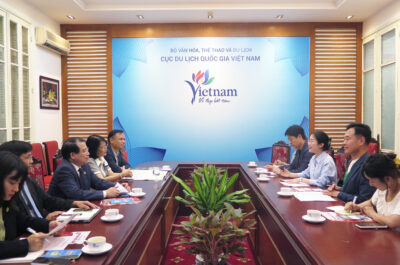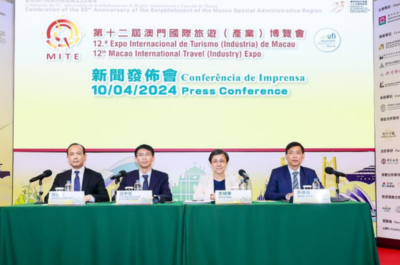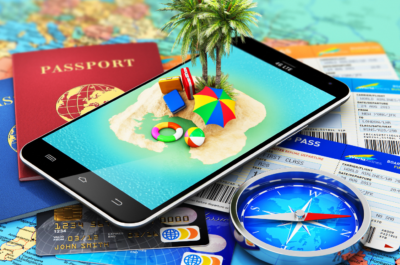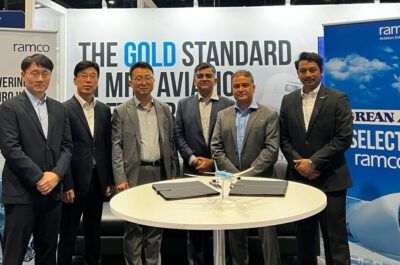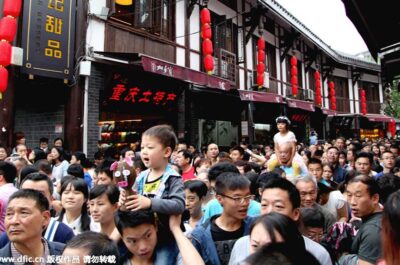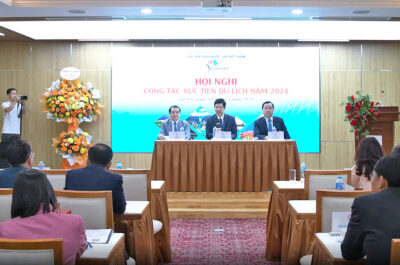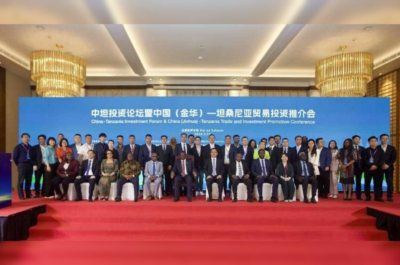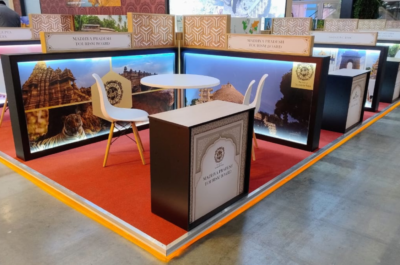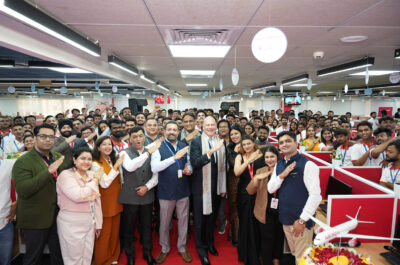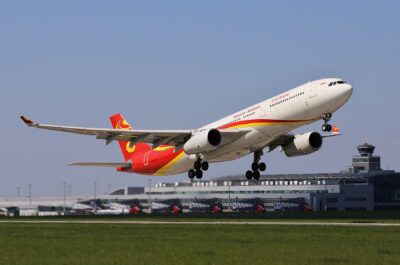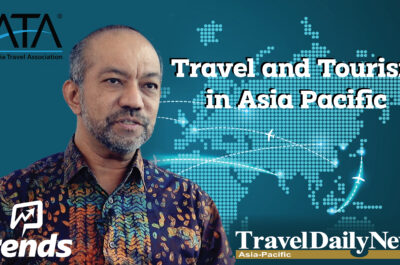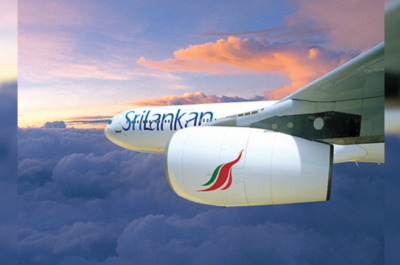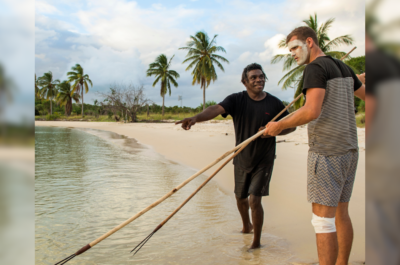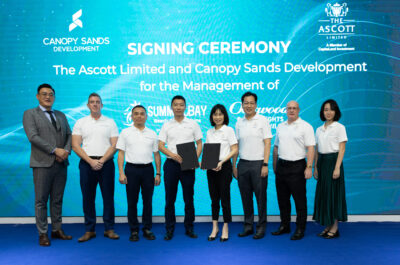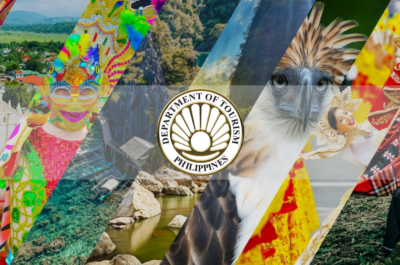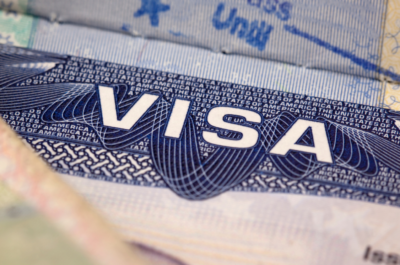The 2016 “Digi.travel Thailand International Conference & Expo” featured numerous and varied inspirational speakers representing different tourism sectors and experience backgrounds (hoteliers, IT suppliers, technology entrepreneurs, marketers, travel agent, destination management organizations).
The 2016 “
Digi.travel Thailand International Conference & Expo” in Bangkok was a great technology innovation stimulating and show case event, that delivered to its participants more than it has promised! The 2016 “Digi.travel Thailand International Conference & Expo” featured numerous and varied inspirational
speakers representing different tourism sectors and experience backgrounds (hoteliers, IT suppliers, technology entrepreneurs, marketers, travel agent, destination management organizations). Speakers’
presentations demonstrated that there are three major issues driving and creating change in the tourism nowadays: customer empowerment; content creation and promotion; and big data. Tourism companies that realize the business potential of these concepts and creatively integrate them their into their value chain processes can significantly increase their performance and competitiveness, while cause disrupting change in the tourism industry.

Lutz Behrendt at Digi.travel Thailand
Presentations demonstrated that customer empowerment is lead and fueled by the affordances of social media, the omnipresence of the Internet (any time, any device anywhere) and the information availability and transparency.

Erick Stephen at Digi.travel Thailand
Customer empowerment has transformed the way tourists search, evaluate, find, select, buy and reflect on tourism experiences.
Lutz Behrendt, Industry Head Travel at
Google Thailand, revealed interesting findings showing how the internet has changed the travellers’ behaviour in terms of: how they search (e.g. use of keywords and booking sequence of travel products); where they search (e.g. preference and influential power of websites, i.e. online travel search paths from the keyword search to the booking stage); what they search for (e.g. what travel experiences and meanings they seek); and when they search (i.e. timing of search and booking in relation to specific events and dates or the time prior to travel). In addition, technological advances such as, augmented reality combined with social media technologies are driving the transformation and the enrichment of customer experience. Indeed,
Erick Stephens, Chief Technology Officer APAC at
Microsoft Public Sector, presented several futuristic but also fast approaching examples showing how augmented reality will change the way people interact with other people, objects and devices, and subsequently, transform the way travellers experience tourism before, during and after their trip.

Jens Thraenhart at Digi.travel Thailand
Customer empowerment also means that the tourists are enabled to actively participate in business operations such as, service customization and delivery. Tourists have become co-designers, co-producers and co-marketers of their travel experiences (e.g. tourists customizing their travel experiences online and/ or selling their own travel services on platforms like airbnb.com, while spreading and sharing their travel experiences on websites like Tripadvisor.com). Indeed, as the presentation by
Jens Thraenhart, Executive Director at
Mekong Tourism & Founder at
Digital Innovation Asia, revealed that the sharing economy has exponentially grown disrupting all tourism sectors and markets (i.e. not only accommodation and transport but also in catering, meeting space, tourist guide services, sailing, camping in both the mass market as well as the niche markets e.g. sharing marketplaces specialising in gay and lesbians, wine lovers etc.). The sharing economy is not only empowering customers to become tourism providers and compete with traditional players, but it also fuels entrepreneurial activity and innovation in the tourism sector. For example, the airbnbn.com phenomenon has inspired many people and IT suppliers to develop and provide business solutions such as, property management systems, people’s reputation systems and online pricing tools to other micro-entrepreneurs that wish to sell their own accommodation online. In this vein, the sharing economy is just the top of the iceberg; the institutionalisation, change and revolution of the sharing economy are heavily fuelled by the sub-economies created around the sharing economy in order to support the various micro-entrepreneurs. However, a panel discussion with various ‘sharing economy’ entrepreneurs revealed that the major entrepreneurial motive for getting engaged within the sharing economy is the financial gain. Thus, one can easily question: is the sharing economy an authentic and alternative tourism experience in contrast to the traditional / commercial tourism experiences; or does the sharing economy solely commercialise authentic tourism experiences and use them as a marketing tool to attract the travellers’ attention and money? Time is the only factor that can answer this.

Siripakorn Cheawsamoot at Digi.travel Thailand

Mario Hardy at Digi.travel Thailand
Customers increasingly use multiple (mobile and smart) devices to feel and stay connected with work and at home as well as to fill in their waiting times in airports, flights, buses etc. The always connected customer expects empowerment at any place, any time and any device. To that end, mobile applications are not a option but an investment necessity in order to enable tourists to support, facilitate and enrich their travel experience during their whole journey lifecycle (i.e. before the trip, during the trip and after the trip). Tourism firms and destinations heavily invest on mobile applications (i.e. destination planning guides, mobile booking, mobile apps informing tourists about destination security – safety issues) according to Mr.
Siripakorn Cheawsamoot, Executive Director, Information Technology Office at
Tourism Authority of Thailand (TAT). However, discussions and findings from travel research show that the business success of a mobile app is not determined by its download rate, but by its engagement level. Firms do not want tourists to solely download their mobile app; firms want the tourists to continuously use their mobile app. To that end, mobile apps should not only provide a good value proposition, but they should be stimulating, appealing and ‘edutaining’ enough in order to attract the attention and download (first use) by the travellers, and then persuade and engage them to repeatedly use it. Technological change is also very fast and tourism firms need to possess market sensing and information alertness capabilities in order to both address and shape market changes as Mr.
Mario Hardy, CEO of the
Pacific Asia Travel Association (PATA) stressed in his presentation.

Bruce Sweigert at Digi.travel Thailand
It is widely said that when the ‘content is the King’, the one who controls it is the ‘King Kong’. This is even more valid in the digital world whereby information is created and diffused in mammoth amounts and rates every single second. Technology advances have currently empowered firms to effectively and fast collect, store and analyse a huge amount of data. Big data applications enable firms to address the four data challenges: volume, variety (text, videos, photos, etc.), velocity (speed of data creation and change) and veracity (i.e. the ambiguity of data, e.g. how would you interpret a customer comment on a meal experience such as ‘this dish is better than your mothers’ cooking’; is that irony or a true comment?). The potential and impact of big data on the button line of tourism firms is enormous.
Bruce Sweigert, Vice President, Business Development APAC for
ADARA, presented numerous examples of how big data can enable firms to understand and influence travellers’ behaviour and offer personalised experiences that ultimately can lead to business differentiation and increased profits. Additional case studies shared by
Diana Helander, Senior Director Product Marketing at
Revinate, also revealed that bid data analytics do not only help the tourism firms to monitor and manage their online reputation; instead by analysing and understanding online customer reviews, the tourism firms can significantly identify how to improve their business processes and generate more revenues.

Diana Helander at Digi.travel Thailand
Technology advances and disruptions are not limited to specific countries and cultures. The technology revolution is dynamically affecting everyone and everywhere. Indeed, two conference panels focused on unravelling the changes taking place in the
Chinese and
Russian digital travel market. Discussions and panellists’ presentations revealed that these two markets do not significantly differ in terms of how the travellers’ behaviours and expectations have changed. What is different though, and the firms aiming to target these two market segments need to know, includes: the social media platforms and tools that are used by every segment; the cultural specific expectations and meanings assigned by these two markets, which in turn significantly influences the type of the content / offering to be used for targeting the segments; and the type and the timing of the offering to be provided for appealing to these two market segments. To that end, access to specialised knowledge and experts is required before deciding to penetrate the Chinese and Russian travel markets.
The closing session of the conference showcased the innovation and the solutions technology startups can bring in the travel industry. The session powered by Thailand Tech Startup Association (Startup Thailand), Amadeus and TravelDailyNews Asia-Pacific. Five travel technology startups (Asia One Click, Take Me Tour, Tineri, Travelmirth, Zip Event) participated in a pitching competition and presented their solutions. TakeMeTour voted by the judges and the delegates as the winner of the competition and received guaranteed access to Amadeus Next, which offers to startups access to technology, expertise, reach and funding.
The 2016 “Digi.travel Thailand International Conference & Expo” provided very good food for thought and inspiration to all its participants. Although discussions and presentations may have created more questions than answers, the 2016 “Digi.travel Thailand International Conference & Expo” finished with a definite conclusion: it will be back next
February 22nd, 2017. So, book your diaries and make sure that you do not miss it.

Marianna Sigala is Professor of Tourism at the School of Management, University of South Australia. Marianna was the chair of the 2016 “Digi.travel Thailand International Conference & Expo”
Email: marianna.sigala@unisa.edu.au
Photo caption: Marianna Sigala at Digi.travel Thailand

Dr. Mariana Sigala is Professor in Tourism and Director of the Centre of Tourism & Leisure Management (CTLM) at the University of South Australia Business School.
Professor Sigala has a PhD from the University of Surrey as well as a Certificate of Advanced Academic Studies from the University of Strathclyde and an MSc in Tourism Management from the University of Surrey.
Professor Sigala is a widely published authority in the area of Service Operations Management and Information and Communication Technology (ICT) applications in Tourism and Hospitality. She also has an interest in e-learning models and pedagogies, having published several research studies in these areas. Professor Sigala’s research is multi-award winning featuring several best paper awards in international conferences and academic journals, such as papers published in the International Journal of Contemporary Hospitality Management and the International Journal of Hospitality Management.
Professor Sigala is the current Chair of the ICHRIE Johnson and Wales Case Study Competition and Publication Series . She is also currently the co-editor of the international journal Journal of Service Theory and Practice, the Editor-in-Chief of the Journal of Hospitality & Tourism Management and the editor of the International Journal of Hospitality & Tourism Cases.
Professor Sigala has also served on the Board of Directors of the International Federation of Information Technology, Tourism and Travel (IFITT) (as Membership Director); the International Council on Hospitality, Restaurant and Institutional Education (I-CHRIE) (as Research Director, 2008 - 2010); the Hellenic Association of Information Systems (HeAIS) (as Publicity Director); and the Executive Board of the European Council on Hospitality, Restaurant and Institutional Education (EuroCHRIE) (as President, 2004 - 2005).
Professor Sigala joined the UniSA Business School in 2015 and brings more than 13 years of international academic and teaching experience to the UniSA Business School and the School of Management.













